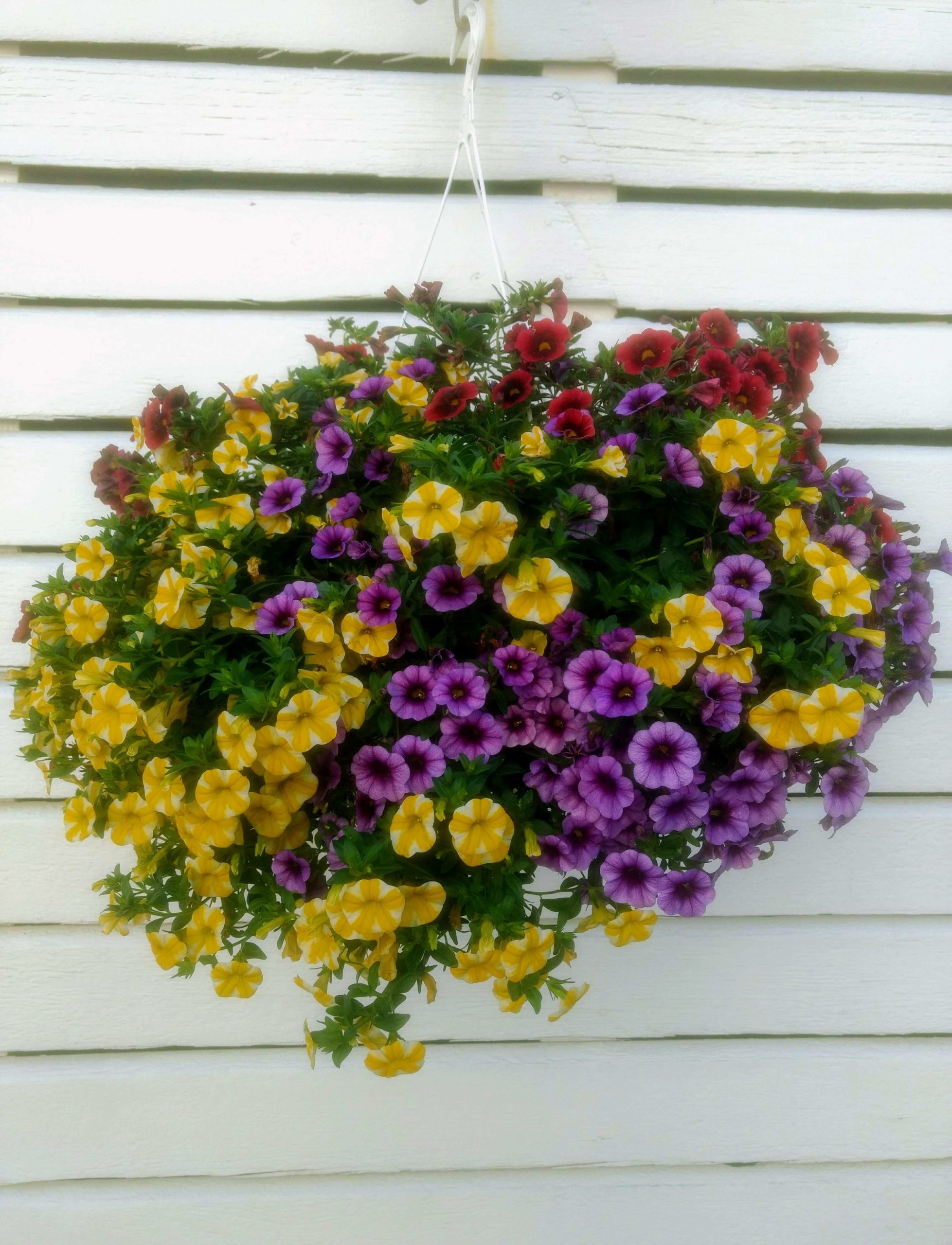Calibrachoa, or Million Bells, are popular plants to grow in hanging baskets, flower pots, or in landscapes.
If you have the itch to grow something and it’s not quite warm enough to plant calibrachoa outside, growing them from seed can be a good idea.
We’ll cover some details on how to grow calibrachoa from seed and helpful information to keep in mind as your seeds germinate and grow into small calibrachoa plants.
Why plant calibrachoa from seed
There are a number of reasons you may want to grow your calibrachoa from seed.
The first, and already mentioned, is time. If you’re in the winter months, purchasing small calibrachoa plants to grow may not be possible.
You can also save money, as calibrachoa seeds are a fraction of the price of purchasing young plants at a nursery or garden center.
Finally, it gives you a feeling of satisfaction to grow the calibrachoa plant from seed all the way through to the end of its lifecycle.
Varieties of calibrachoa you can start from seed
You can plant most calibrachoa varieties from seed.
What temperature is ideal?
A calibrachoa seed requires a certain temperature range in order to germinate. Outside of this optimum range, germinating your calibrachoa seeds is still possible, but your success rate will be less.
Most plants’ ideal temperature range to germinate is 68 – 86 degrees Fahrenheit.
When to sow the calibrachoa seeds
Choosing the best time to sow your calibrachoa seeds depends on when you are planning on planting them outside.
Typically, calibrachoa seeds should be planted 6-8 weeks before you plant to plant them outside. Check your seed packet for the specific timing of your planting.
It’s definitely possible to plant calibrachoa outside of this window, but you may need to nurture the plant more inside before it’s warm enough to plant it outside.
Knowing when to plant an annual outside can be tricky, so make sure it’s not too early in the season when you plant your calibrachoa outside.
How long will it take for calibrachoa seeds to germinate?
Your calibrachoa seeds should germinate 7-14 days after they are planted.
This timeframe may change depending on how consistently you are keeping the soil moist and in the light. A seed that isn’t well taken care of will take longer to germinate or die before ever sprouting.
How to plant calibrachoa from seed
To plant calibrachoa from seed, you can follow the following steps
1. Purchase the calibrachoa seeds & potting soil
This can be done at many garden centers or greenhouses. If seeds are not available this way, many online stores offer calibrachoa seeds for sale.
Your calibrachoa seeds will grow best in potting soil rather than topsoil, so make sure to purchase some potting soil to plant the seeds in.
2. Find a container to plant in
You’ll need a container for your soil and calibrachoa seed. Seeds do not need much space to grow. In fact, you can plant multiple seeds in the same container and then separate the sprouts once they germinated and plant them in their own spot.
For a home solution, egg cartons or egg trays can be a good place to plant seeds and have them sprout. These containers provide more than enough room for a seed to germinate.
3. Plant your calibrachoa seeds
To plant the calibrachoa seeds, fill your container with potting soil. No need to fill it to the brim, as water runoff may overflow the container.
Now it’s time to plant your seed. The general rule of thumb with seeds is to plant them 2 to 3 times their length. You’ll want to error on the side of not planting them deep enough.
To plant the seed, you can poke a hole in the potting soil with your finger, or use a stick.
Cover the seed up with potting soil once you have placed the calibrachoa seed in the hole.
4. Water your newly planted calibrachoa seed
Water the calibrachoa lightly. Be careful not to overwater it. A calibrachoa seed only needs damp soil to begin its germination.
Transplanting calibrachoa seedlings
After the calibrachoa seed has sprouted, you can transplant it into another container.
To do this, push your finger down below the sprout and gently pull up so that minimal roots are damaged.
Once you have a free calibrachoa sprout, you can plant it in another container and gently water it in.

